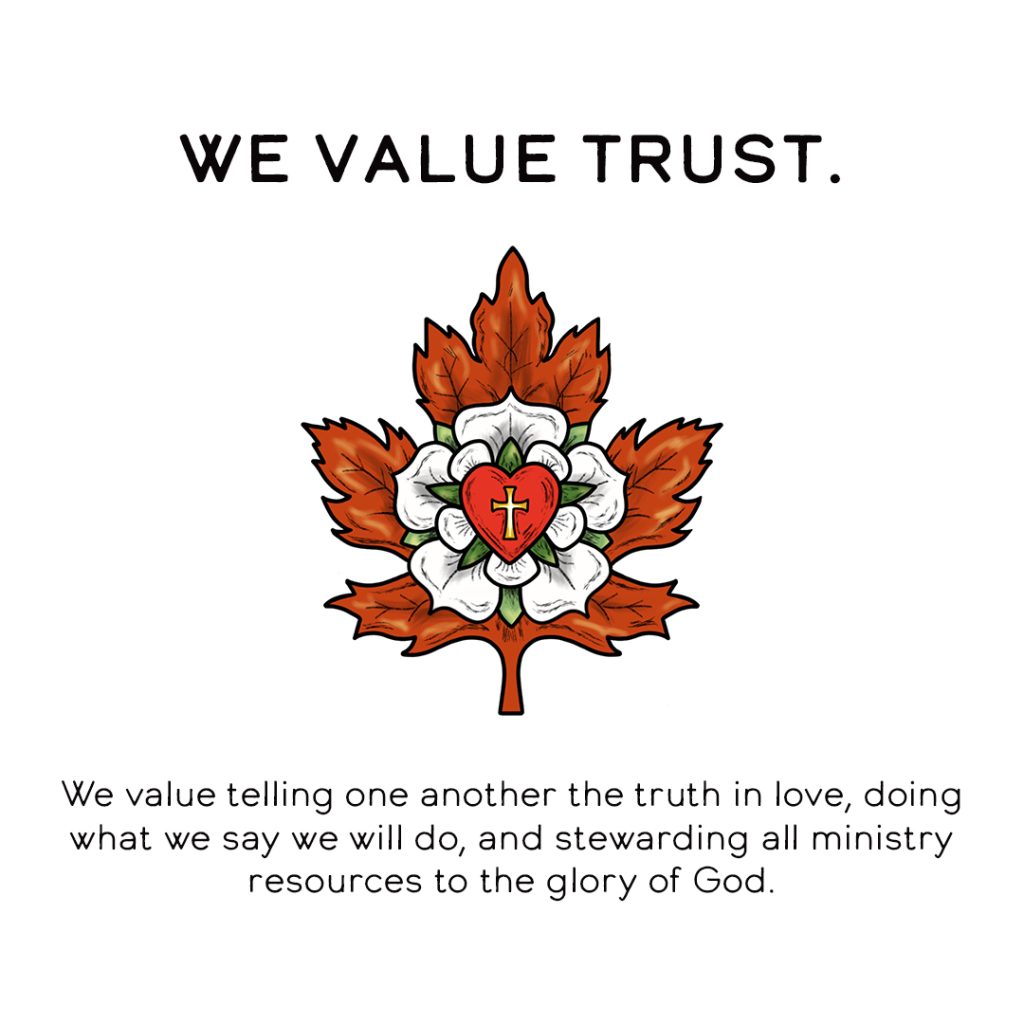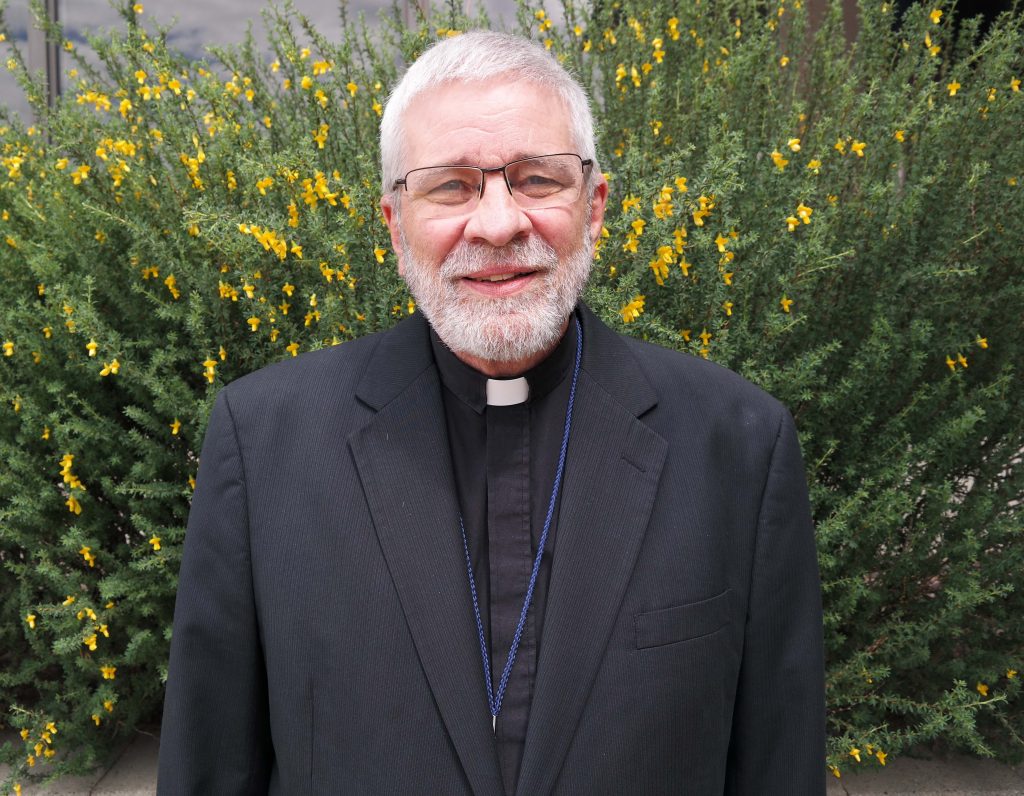We Value Trust

by Timothy Teuscher
“We value telling the truth in love, doing what we say we will do, and stewarding all ministry resources to the glory of God.” That is the sixth value statement or core principle which undergirds and reflects what our walking together as pastors, deacons, and congregations in our synodical family means and involves. In other words, we value acting in a trustworthy manner—giving a reason to our members to place their trust in the work we do together as a synod in service of the Gospel.
Quite frankly, there’s not a lot of trust going on these days, is there? There is little, if any, trust in what our political leaders say and promise. Little, if any, trust in what is reported by the media. Little, if any, trust in statements issued by the medical community. Little, if any, trust in what the financial experts have to say about the economy. Little, if any, trust in families—whether between husbands and wives or parents and children. Little, if any, trust in religious organizations and its leaders—whether it be on the local or national level. Even our own Lutheran Church–Canada is not immune from this society-wide loss of trust.
Now, what do the Scriptures say about this matter of ‘trust’? “It is better to take refuge in the LORD than to trust in man. It is better to take refuge in the LORD than to trust in princes” (Psalm 118:8–9); so David declares. Or as David’s son, Solomon, adds: “Trust in the LORD with all your heart, and do not lean on your own understanding” (Proverbs 3:5). God, then, is ultimately the only One in whom we can place our total and unfailing trust.
At the same time, however, we must recognize that—even though others will fail us at times, and even though we have and will fail others—without trust, close relationships with others is impossible. This is so in families, in society, and also within the church. What, after all, is often at the core of a dysfunctional family… yes, at the core of a dysfunctional church? Is it not often a lack of trust and putting the worst construction on the words and actions of others (to use the words of the catechism explanation of the Eighth Commandment)?
…we should all strive to act in a more trustworthy manner according to our vocations, and be willing in turn to place our trust in others as they exercise theirs. But this effort on its own is not enough to create trust. Instead, it is only because we trust that God will never fail us that we can begin to trust others.
Adding more bylaws and rules and regulations won’t address this kind of suspicion. Instead, we should all strive to act in a more trustworthy manner according to our vocations, and be willing in turn to place our trust in others as they exercise theirs. But this effort on its own is not enough to create trust. Instead, it is only because we trust that God will never fail us that we can begin to trust others.
The confessional address in the order of Corporate Confession and Absolution (LSB pages 290-291) puts it this way: “When we examine our hearts and consciences, we find nothing in us but sin and death, from which we are incapable of delivering ourselves. Therefore, our Lord Jesus Christ has had mercy on us… took upon Himself our sin and the punishment we deserve.” And then it concludes with these words (and notice the ‘trust’ implications!): “We are all one bread and one body, even as we are all partakers of this one bread and drink from the one cup. For just as the one cup is filled with wine of many grapes and one bread made from countless grains, so also we, being many, are one body in Christ. Because of Him, we love one another, not only in word, but in deed and in truth.”
True intimacy between husbands and wives, parents and children… a harmonious relationship between pastors and people in our congregations… a real walking together of pastors, deacons and congregations in our synodical family… this is achieved and maintained only through honesty on one side and trust on the other. After all, it requires trust to bear one another’s burdens, to confess our sins one to another, to share our material treasures with others, to be assured that our offerings given to the church are used properly and wisely.

Martin Luther sums it up in these words: “In short, whoever wants to be a Christian must make up his mind neither to undertake nor to discontinue any good work on the basis of what other people think or do, but only as a means of serving God through his office or station, his money or goods, or whatever other possessions or abilities he may have, doing what he can to His glory although he may never merit any thanks at all for it on earth.”
———————
Rev. Dr. Timothy Teuscher is President of Lutheran Church–Canada (LCC).
A new value statement will be discussed in forthcoming issues of The Canadian Lutheran magazine. Check out the other columns in this series:





